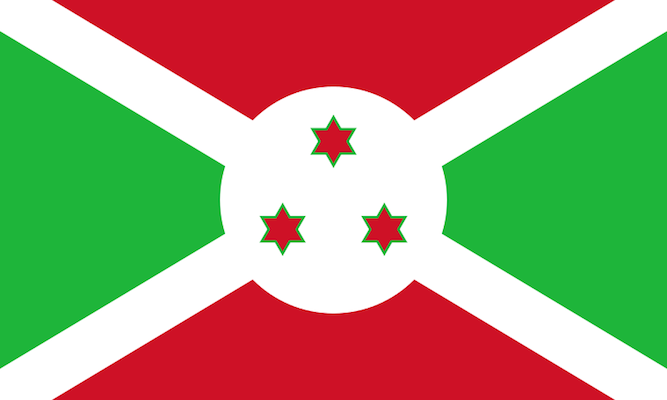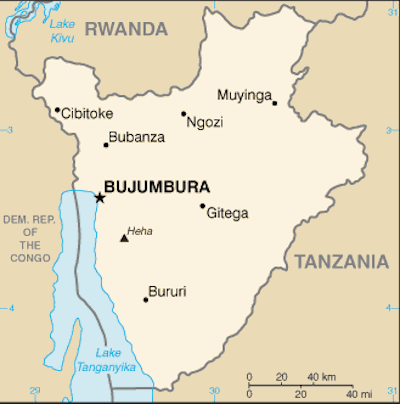The following is an installment in my ongoing series on the 2015 Burundian constitutional crisis.

Flag of Burundi
After reading the 2005 French-language Burundian constitution myself, I have tentatively come to the conclusion that the current President, Pierre Nkurunziza, is technically constitutionally allowed to seek another term — but only by deliberately misconstruing some poor word choices in the text. First, I present my textual analysis to develop this finding. Second, are my recommendations on what lessons can be drawn from this crisis, in terms of future drafting of documents to guide political transitions and post-transition foundations.
Basically, there are two conflicting elements in the text. Article 302 stipulated that the first “post-transition” president — which ended up being Mr. Nkurunziza — specifically had to be elected by both chambers of parliament, rather than the voters directly, “on a purely exceptional basis”:
A titre exceptionnel, le premier Président de la République de la période post-transition est élu par l’Assemblée Nationale et le Sénat élus réunis en Congrès, à la majorité des deux tiers des membres.
(My direct translation: “On a purely exceptional basis, the first President of the Republic of the post-transition period is chosen by the elected National Assembly and Senate assembled in Congress, with a two-thirds majority of the members.”)
But at the same time, Article 96 states that (in general, presumably): “The President of the Republic” is to be “elected by direct universal suffrage for a five-year term renewable once”:
Le Président de la République est élu au suffrage universel direct pour un mandat de cinq ans renouvelable une fois.
So President Nkurunziza’s argument is that because he was indirectly elected under Article 302 in 2005 and then elected directly to a five-year term in 2010 that means he is eligible to renew his term one more time by direct election. Which is pretty sketchy — but a literally acceptable interpretation of the text, since Article 96 failed to take the lingering effects of Article 302 (which falls under the “Special Provisions” Title XV) explicitly into account.
Lessons: The wording of Article 96 is grammatically and syntactically stitched together for elegant efficiency rather than explicit clarity, which now seems to have been a mistaken decision. I believe one of the former Burundian Supreme Court members labeled it against the “spirit” of the document and the Arusha Accords that preceded it, even if it was perhaps a textually permitted interpretation.
Of course, there’s little likelihood that preventing this loophole could have avoided the current situation entirely, given that the President was determined to amend the constitution anyway, until he discovered he could use the loophole instead and avoid the hassle. Clearly he had an agenda, with or without this language error. Still, it has needlessly provided him a very convenient shield for his actions. And that, at least, could indeed have been avoided.
Recommendation to future transitional/foundational document drafters: Break up your sentences. And account for deliberate misinterpretations of conflicting provisions. If it had said “The President of the Republic is elected by direct universal suffrage. A presidential term is five years in length and renewable once” there would likely be no way to misread it intentionally. By joining those three thoughts (direct election AND term length AND term limit) into one sentence, it made the term limit contingent upon the election method, which itself had been exceptionally overridden in the other article for the purposes of the first post-transition term only.
While this subject may seem excessively narrow to which to devote a detailed analysis, I bring up these observations about the importance of precise drafting because I found it to be similar to Burkina Faso’s incredibly messy constitutional revisions that (apparently inadvertently!) left literally no one in line to succeed the presidency upon a vacancy, forcing — or at least facilitating and quasi-legitimizing — a military coup when the president resigned unilaterally. These decisions on wording can have far-reaching implications years later.





